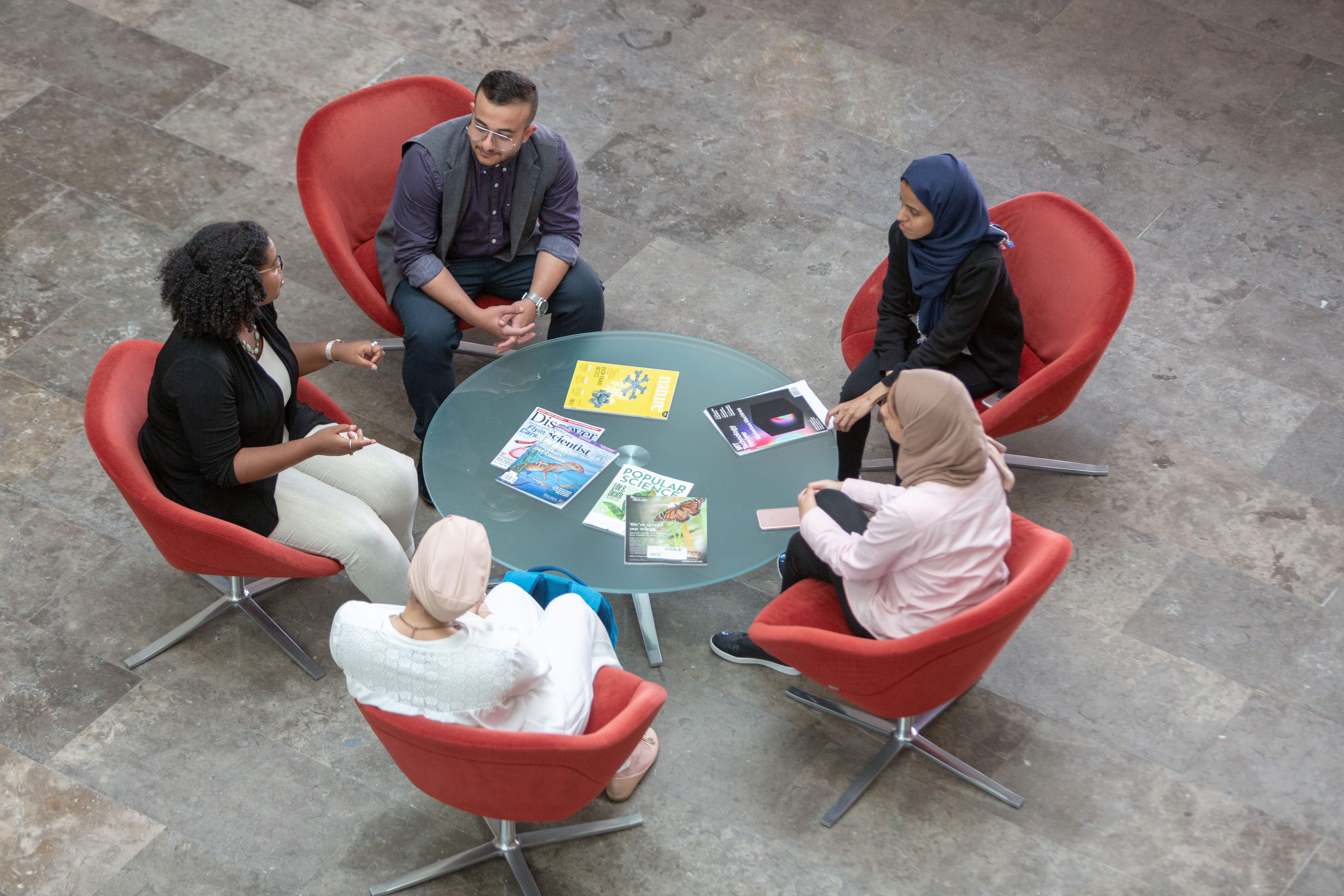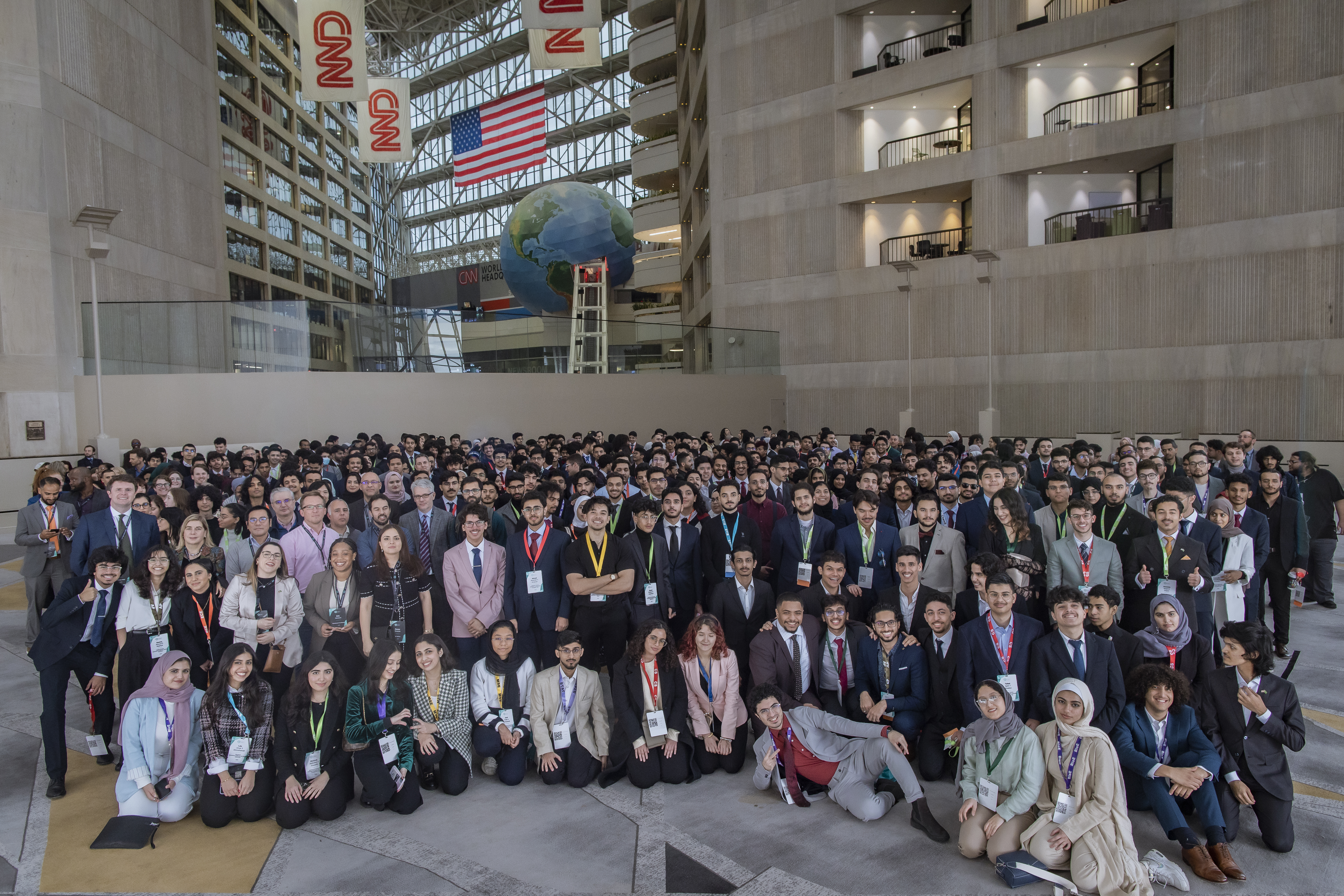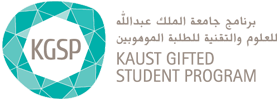Spring Conferences
Bader Abdulmajeed, a junior majoring in Computer Science at the University of Pittsburgh, attended the 2021 International Solid-State Circuits Virtual Conference held February 13-22, 2021. Intrigued by this year’s conference topics, Bader was eager to take part: He particularly enjoyed “Brain-Computer Interfaces (BCIs): Fundamentals to Future Technologies” with Dr. Rikky Muller. The presentation focused on the intricacies and challenges that BCIs face in terms of physical limitations, difficulties reading biophysical data from neurons, and troubleshooting while the device is deployed.
“I've always been interested in human-computer interaction, and this is a prime example of the kind of work I would like to participate in,” Bader stated. “It gave me a behind-the-scenes look at the cutting-edge devices and the difficulties and compromises that need to be done in order to achieve our goals and make the device effective while maintaining well-being.” As a hardworking student, Bader has always been dedicated to learning more within his CS major, confirms his KGSP advisor Kristen Olsen; together, Bader and Ms. Olsen have collaborated to ensure he maximizes the opportunities available to do so as a KGSP student.
Basem Eraqi’s experience as a KGSP student studying Mechanical Engineering at the University of California, Irvine showcases the evolving journey of a student dedicated to following his interests and expanding his knowledge within his field of study. In the summer of 2019, Basem participated in KGSP custom program at the University of California, Los Angeles, where he conducted a research project entitled “Assessment and Tracking Electric Vehicle Battery Degradation Cost using Blockchain.” The success of this project created the opportunity for Basem to present his research at professional conferences, most recently at the 12th Conference on Innovative Smart Grid Technologies (IGST) held virtually February 16 – 18 2021. Basem confirms that based on these opportunities, “I am now better prepared for presenting in research conferences, and I know which types of questions to expect during poster sessions.” Now completing his final semester of undergraduate studies, Basem has been accepted to begin graduate work at KAUST this fall, where his expertise will only continue to grow.
Bader’s and Basem’s experiences demonstrate the importance of attending professional conferences as an undergraduate, providing opportunities to develop essential public speaking skills, to conduct valuable networking, and to further explore cutting-edge ideas and technologies.
As the spring semester continues, KGSP students are making plans to attend additional exciting and informative virtual conferences, some which include: The Future Food-Tech Summit, the 2021 IEEE International Conference on Intelligent Reality (ICIR), Conference on Lasers and Electro-Optics (CLEO), and the American Physical Society’s March Meeting.
STUDENT PROFILE
KGSP students represent the Kingdom of Saudi Arabia’s future scientists, engineers, entrepreneurs, and thought-leaders. As both individuals and as a community, they reflect the KAUST mission of driving scientific discovery through excellence in education and cutting-edge research, and share a commitment to fostering innovation, economic development, and social prosperity throughout the Kingdom and the world.
ADMISSIONS REQUIREMENTS
Selection to the KGSP is extremely competitive, and currently by invitation only. Successful applicants are Saudi Arabian students in their final year of high school who demonstrate impressive academic credentials within STEM fields, meaningful extra-curricular achievements, and who share the KAUST ethos of continuous discovery. Learn more here.
KGSP ADMINISTRATION
The KGSP is administered by KAUST Academy under the leadership of Dr. Sultan Al-Barakati. KAUST Academy is mandated by KAUST to support the acceleration of Saudi Arabia's knowledge-based economy by providing world class training programs in emerging technologies aligned with Vision 2030. KAUST Academy crafts these unique learning interventions by exporting the intellectual DNA acquired by KAUST for the benefit of the entire Kingdom.

—King Abdullah bin Abdulaziz al Saud
1924 – 2015











